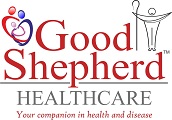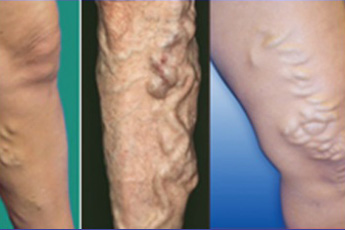
What are Varicose Veins ?
Varicose veins are large and tortous veins that usually occur in the legs.
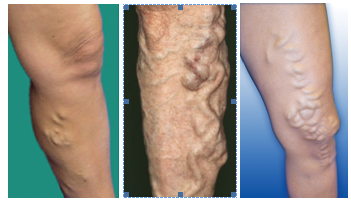
They are usually located on the inside of the calf or thigh and develop due to weakness of the vein wall and loss of valve function. Under the pressure of gravity, they con¬tinue to enlarge, and in the course of time, they may become elongated, twisted, pouched and thickened.
Do all Varicose Veins need treatment ?
Yes. Treatment does not always mean a procedure, an intervention or a surgery. In the early stages, it denotes use of medical compression stockings with or without a medication. In the later stages, some intervention is generally needed to prevent LIFE-THREATENING complications like Bleeding, Thrombosis and Pulmonary Embolism.
However, Varicose veins may be entirely symptom-free and cause no health problems. Treatment in such cases is often for cosmetic purposes.
When symptomatic, varicose veins may cause ankle and leg swelling, heaviness or tension, aching, rest¬lessness, cramps and itching.
Varicose veins are more often symptomatic in women than in men.
Are Varicose Veins hereditary ?
Yes and No. There is a familial tendency for varicose veins. There have been reported absence of a valve in the groin vein at birth in a certain percentage of patients.
The causes of varicose veins are however best grouped as primary, secondary, or congenital.
Primary Varicose Veins develop as a result of an inherent weakness in the wall of the vein.
Secondary Varicose Veins that develop after trauma or deep vein thrombosis are of secondary cause.
Congenital Varicose Veins are due to disorders in the natural development of the venous system, and usually are part of a vascular mal¬formation in the limb, present at birth.
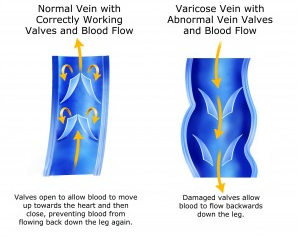
What causes the skin changes in varicose veins ?
No matter the cause, defective venous valves causes the venous blood to stagnate in the leg, leading to an increased pressure in the veins. This may result in further enlargement of the varicose veins, increasing the likelihood of symptoms, and causing complications such as swelling of the leg, blackish pigmentation, eczema and ulcer formation.
What are the Risk Factors for Varicose Veins ?
The most important factors leading to the
development of varicose veins include:
• Heredity
• Prolonged standing
• Heavy lifting (weight trainers in gyms beware !)
• Prior superficial or deep vein clots
• Female gender
• Multiple pregnancies
How are Varicose Veins diagnosed ?
The diagnosis of varicose veins is made primarily by physical examination alone !
The most accurate and detailed test is a duplex ultrasound exam, which provides an ultrasound image of the vein to detect any blockage caused by blood clots and to determine whether the vein valves are working properly. These diagnostic tests are painless.
Can you prevent Varicose Veins?
You can’t do anything about your heredity, age or gender. However, you can help delay the development of varicose veins or keep them from progressing.
• Be active. Moving leg muscles keeps the blood
flowing.
• To temporarily relieve symptoms, lie down and raise your legs at least six inches above the level of your heart. Do this for ten minutes a few times each day.
• Maintain a normal body weight.
• Wear prescription compression stockings as specified by your doctor, especially during pregnancy.
• See a qualified doctor who can diagnose the cause of your varicose veins, the sources of venous reflux in your legs and offer a variety of treatment options.
What are the treatment options for Varicose Veins ?
Treatment options for varicose veins include medical compression stockings with medications or some form of vein procedures.
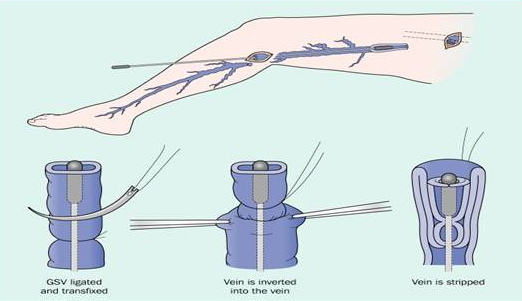
The role of medical and machenical support is only temporary while longer lasting results are better obtained with a number of minimally invasive
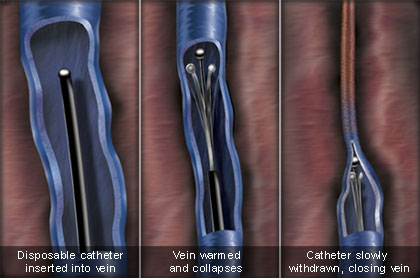
surgery techniques like MIVAS ( Minimally-Invasive Venous Ambulatory Surgery), Endovenous laser therapy (EVLT), and chemical or radio-frequency ablation. 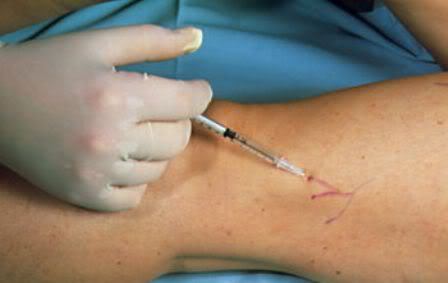
These are generally Out-Patient, Day-Care Surgery or One-Day Surgery procedures.
Do Varicose Veins recur after Surgery ?
A Standard Surgery Procedure generally is not associated for a recurrence in the areas where the procedure has been performed.
A venous procedure is generally intended to take care of incompetent valves and perforators and not all perforators or valves. Closing even normal valves or perforators would lead to an abnormal swelling of the legs as the blood drainage of the leg would be severely compromised.
Previously normal valve and / or perforator veins may start to allow abnormal flow resulting in appearance of varicose veins in previously normal areas. This normally happens if the patient has gained excess weight and not followed precautions like those suggested above.




